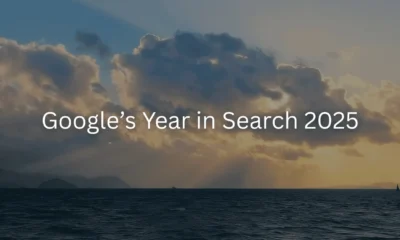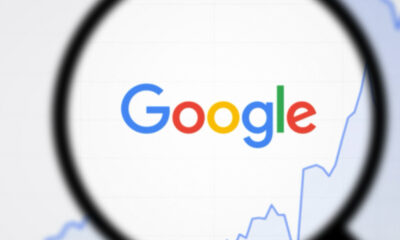Earlier this week, Google announced the Topics API, its latest ad targeting proposal aimed at replacing third-party cookies. This leaves Federated Learning of Cohorts dead in the water while marketing and adtech platforms and advertisers try to make sense of the new proposal.
Topics may be a more realistic option than FLoC, marketers say
“Topics seem more likely to be acceptable to the broader ecosystem as they address several FLoC privacy concerns head on,” said Aaron Levy, head of paid search at Tinuiti. “It’s odd to call this an advantage, but I view anything that launches with a higher likelihood of stability and lesser likelihood of mass opt-outs a win.”
The other practitioners seemed to concur. “On their face, Topics seem like they should be less personally identifiable, which would be a plus for privacy,” said Julie Friedman Bacchini, president of Neptune Moon and managing director of PPC community PPCChat.
“I like that Chrome users will be able to see their topics and delete them if they wish,” said Christine Zirnheld, digital marketing manager at Cypress North. While this feature can make life harder for advertisers, options for users will help to appease privacy advocates and regulators, which increases the chances that Google will eventually be able to launch Topics.
Topic diversity and other potential hurdles for advertisers
The Topics API’s initial design includes approximately 350 topics, according to its GitHub page. Advertisers are concerned that this quantity won’t be sufficient enough to provide relevant targeting.
“Google’s current interest list [of topics] doesn’t offer the level of nuance most marketers need to target people who’d actually want to see their ads,” said Ashwin Balakrishnan, head of marketing at Optmyzr. “If Topics is going to be a success, Google needs to provide more detailed options.”
“Advertisers (at least as of now) would have few interests to actually target, and broader targeting does not usually lead to better performance,” Zirnheld said. “An interest in cars & autos doesn’t tell me if that’s luxury, rental, new, used, SUV, etc.,” Geddes added, “That means there will be more competition for less targeted ads,” noting that, at this point, it is still too difficult to predict how Topics will work in practice.
For reference, the IAB Audience Taxonomy contains approximately 1,500 audience segments. “One of the most popular drinks in the U.S. is Coffee,” Zirnheld provided as an example. “The IAB Taxonomy has ‘Coffee,’ ‘Coffee & Tea,’ ‘Coffee Creamer,’ ‘Coffee Filters,’ and ‘Tea/Coffee – Ready-to-drink.’ The closest topic Google has (at the moment) is ‘Food & Drink.’”
Despite the relatively low number of topics designed into the initial proposal, Google may already be aware of this issue: “This is a starting point; we could see this getting into the low thousands or staying in the hundreds [of topics],” said Ben Galbraith, Chrome product director.
In addition to the potentially limited topics, “The limited timeframe could be concerning for advertisers, as they are used to much more persistent inclusion of an audience than one to three weeks,” Bacchini said, caveating that it remains to be seen whether keeping interests more current might also yield benefits. Levy also touched upon this concern: “It feels more directionally accurate than truly precise,” he said. “I hope for some sort of a boolean setup longer term where we’re able to combine, expand or narrow topics, but of course time will tell.”
As a privacy measure, there is a 5% chance that a random topic is returned, according to the GitHub page. This is to ensure that each topic has a minimum number of members. “While I understand that this helps ensure anonymity and privacy for internet users, this is obviously not a good thing for advertisers,” Zirnheld added.
Chrome might be the only browser to adopt, but that might not matter for some
“Chrome is still the big boy in the browser war,” said Steve Hammer, president and co-founder at RankHammer, “I do think Edge will matter as more people get Windows 11, but that’s the lone one I’d worry about for clients.”
“While Chrome’s market share is (slightly) shrinking, I don’t anticipate this’ll change our usage at all,” Levy said, “Rather, it will all fit into a broader theme of treating the data as directional rather than ‘right.’”
“If it’s limited to Chrome, we’ll see how that affects iPhone users,” Geddes said, noting that, “The lack of cross-browser support is a bit worrisome, but it won’t affect anyone’s budget if they are getting good returns from their marketing dollars.”
If Chrome claims enough of the browser market, that might empower Google to continue with the Topics API without having to go to the bargaining table with its competitors. That independence can help the company stick to its Privacy Sandbox timeline, which shows that all associated initiatives are slated to be launched in Chrome sometime in Q4 2022.
Is Topics an improvement over FLoC?
As with all potential third-party cookie replacements, Topics must be evaluated from the user privacy perspective as well as the advertiser perspective. “FLoC raised privacy concerns and Topics seems more privacy-friendly and attempts to provide more control and transparency to internet users. In that way, Topics is ‘better,’” Zirnheld said.
“However, this means broader targeting for advertisers, meaning less control over who sees our ads,” she noted. “We might have to get more creative with targeting for our clients if this is the route Chrome is taking.”
“For advertisers, I expect that Topics wind up more restrictive with less options and less precision than we were hoping for from FLoC (which is already a reduction of current tactics),” Levy said. “It’s annoying, but also encouraging that Google is trying to come up with a solution that works for everybody.”
Google is trying to address the significant pushback and concerns provoked by FLoC, said Yahoo CBO Iván Markman. “It is yet to be seen whether this next iteration is workable, given how high level and short-time-spanned it is. Google’s FLoC received negative policy and industry feedback, and there was concern that FLoC IDs could have been exploited for cross-site user tracking. With the release of Topics API, Google is providing a higher level of user obfuscation and localized browser storage vs. a centralized storage location.”
Wayne Coburn, director of product at cross-channel marketing platform Iterable added: “Google’s pivot — from FloC to Topics — shows that consumers have lobbying power and a voice they are not afraid to use. People understand that their data is valuable, and they are moving to preserve the value of their assets. With FLoC, Google was trying to ensure their continued dominance in the advertising space, and both consumers and the ad industry responded with a resounding no. With Topics, Google is admitting they need to do more to preserve and protect consumer privacy.”
Ultimately, third-party cookies are going away, so expect growing pains
“The current conversations around FLoC Topics highlight one thing: Third-party (aka advertising) cookies are dead,” said Coburn. “It is more important than ever for marketers to have and maintain quality first-party data. Consumers have to be able to trust the brands they interact with — from the ethics of the brand through to the way it handles personal information — and if a consumer doesn’t trust a brand, they aren’t going to let their data anywhere near it. That isn’t going to change, so the way big tech handles data has to.”
However, “Anything that is a departure from cookies is going to feel like a step down in targeting, I think,” Bacchini said. “We are going to have to adjust our thinking about what ‘accurate targeting’ actually means and come down off of the sense of strong or accurate targeting that we feel like we have had up until this point.”
Additional reporting by Kim Davis.





















You must be logged in to post a comment Login